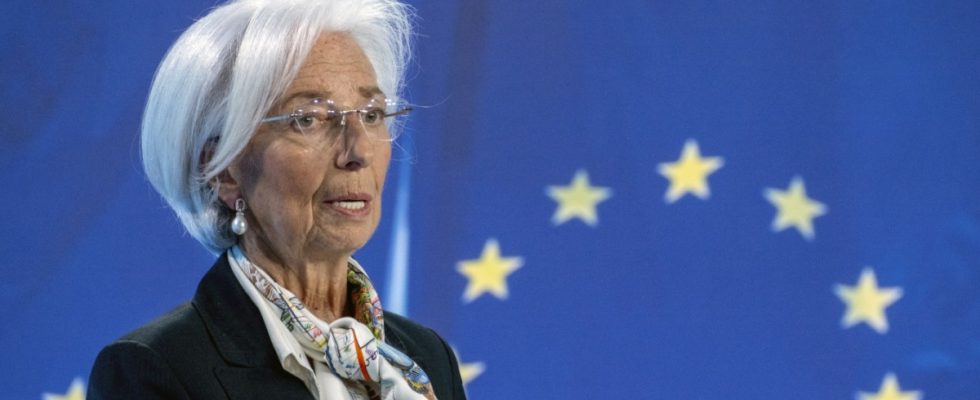It was “Ethics Day” on October 21, 2020, when Christine Lagarde made the fight against abuses in the central bank her cause. “We have now introduced rules that offer whistleblowers safe protection from retaliation,” said the President of the European Central Bank (ECB). “Now we can practice what we preach.”
The ECB is a renowned institution, but there can be grievances there too. Employees who notice something like this are usually unsettled. Who should they tell about this? And what are the consequences for yourself? That’s why it was important that Lagarde wanted to allay the fear of her employees to denounce calamities.
But if you believe the central bank union IPSO, then the last four years have not been a good time for whistleblowers in the ECB. “Some disturbing experiences from the past show that protection for whistleblowers needs to be improved,” demand the IPSO representatives – advertised International and European Public Services Organization – At the end of February in an internal letter that is available to the SZ.
This is another setback for Lagarde. A few weeks ago, employee representatives published an employee survey in which the Frenchwoman did not do well. When he took office in 2019, Lagarde had a reputation for being able to smooth things over and get along well with people. That may be true in the upper decision-making bodies, but apparently not for some of the workforce. The majority think that the French woman interferes too much in political and social debates – and many don’t trust whistleblower protection either.
The central bank doesn’t want whistleblowers to go to the press
The union letter to the more than 4,000 employees contains accusation after accusation. It is not explicitly stipulated that the ECB needs a court order in order to be able to tap a suspect’s phone. In general, data protection is not far off: in a specific case, the human resources department would have had access to the medical records of 250 employees. The ECB says it adheres to German law and has never in its history intercepted internal or external telephone calls made by its staff. And the lapse with the medical data? The rules were improved accordingly in 2017.
Behind all of these allegations is the question: How far would the employer go to investigate employees who are suspected of having leaked internal information about grievances to the press? The ECB wants offenses to be reported internally. There are also corresponding channels that guarantee anonymity. If such a report is not processed by the ECB, the employee can contact the European Anti-Fraud Office (OLAF).
The central bank doesn’t want whistleblowers to go to the press. The union, in turn, is demanding this right with reference to the EU directive on whistleblower protection. It regulates the circumstances under which a person may inform the press about grievances, for example in the event of imminent danger due to the suppression of evidence. Otherwise, the internal reporting channels must first be used and appropriate waiting periods must be observed in order to give the employer the chance to react.
In its fire letter, IPSO complains that employee representatives are not at the table when the employer troika made up of human resources, auditing and the ECB secretariat initiates investigations against suspicious central bank employees.
The dignity of the employee should be protected – with the help of a system
Things are different in German companies; the “two-key system” is often used here: “The employer informs the works council that an employee is suspected of having committed injustice through data processing,” says Bertold Brücher, head of the social law and employee data protection department at the DGB Federal Executive Board.
If the employer pursues this, it is important that a precise path is specified for such measures that precisely defines the escalation levels. If these stages were regulated in a works agreement, the works council would also agree to the measure in an emergency. “We believe the two-key system is important so that the dignity of the employee is preserved,” says Brücher. It has not yet been decided whether the central bank will follow this example: “We are reviewing this process and will take into account input from various groups, including employee representatives,” the ECB said upon request.
Employees had to experience just how aggressively the central bank can react when unpleasant information becomes public after the SZ reported that two ECB directors repeatedly took their spouses with them on long-distance business trips – at the expense of the central bank. In their letter, IPSO union members accuse the institution of doing everything it could to investigate the whistleblower. Is that true, ECB? “For confidentiality reasons, we can neither confirm nor deny this.”

